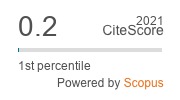Machine Learning Algorithm that Uses Multiple Layers to Progressively work on Complex Datasets
DOI:
https://doi.org/10.17762/msea.v71i1.1866Abstract
Deep Learning architectures have the capability to generalize in non-local and global ways, generating learning patterns and relationships beyond immediate neighbors in the data. The successful design of a pattern analysis system for machine olfaction requires a careful consideration of the various issues involved in processing multivariate data: signal-preprocessing, feature extraction, feature selection, classification, regression, clustering, and validation. A considerable number of methods from statistical pattern recognition, neural networks, chemo metrics, machine learning, and biological cybernetics have been used to process electronic nose data, these algorithms are largely motivated by the field of artificial intelligence, which has the general goal of emulating the human brain’s ability to observe, analyze, learn, and make decisions, especially for extremely complex problems.




